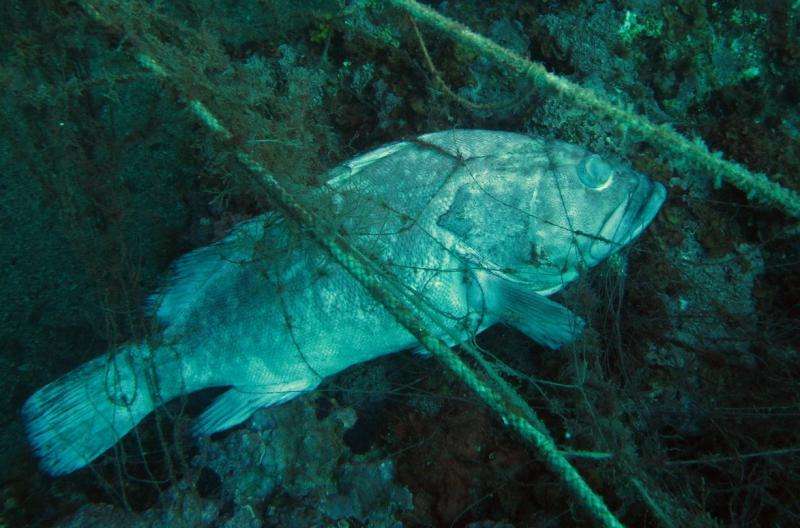Removing lost fishing nets to protect the seabed

To remove lost fishing nets and gear used in both artisan and leisure fishing from the seabed in order to avoid negative environmental impact on marine ecosystems is the main objective of the campaign that was set up on 12 June, at 10 a.m. The campaign was developed on board of the ship Freuetó, which departs from the port of L'Estartit. It is an initiative led by a group of experts from the Department of Ecology and the Biodiversity Research Institute (IRBio) of the University of Barcelona (UB) together with the Montgrí, Medes Islands and Baix Ter Natural Park.
UB experts Bernat Hereu, Cristina Linares, Pol Capdevila and Eneko Aspillaga participated in this first action to detect and remove lost fishing gear. The campaign aims at minimizing the impact that fishing gear produces on the seabed and marine ecosystems. It will also increase natural park users' awareness of the fragility of the seabed and the efforts that must be made in order to preserve and recover natural heritage.
Ghost nets that continue catching fish
Most gear used in leisure fishing and artisan fishing are passive. In other words, gear is not spread out by power-driven boats and is not swept along the seabed. "However, when fishing gear (hooks, threads, weights, long lines, trammel, etc.) get lost or trapped on the seabed, they may produce severe impacts on marine ecosystems," says Bernat Hereu, professor in the Department of Ecology of the UB and coordinator of the scientific campaign.
Lost fishing gear are real "ghost nets" that continue catching fish for many months without any type of profit for fisheries. According to experts, they are responsible for a high percentage of incidental bycatch of commercial and non-commercial species all over the world. Moreover, caught fish can be a death trap for marine birds like cormorants and shags.
A threat to seabed biodiversity
Lost fishing nets, which can be hundreds of metres long, are swept along the seabed by the movement of water masses (water currents, storms, etc.), and can become fouled with sessile organisms that inhabit marine seabed.
"Communities inhabiting the seabed —particularly coralline— are composed by a large amount of slow growing organisms which present a fragile structure, like algas calcareas, gorgonians, bryozoans, arborescent algae, etc. They are particularly sensitive to any physical alteration and they need so much time to recover," emphasizes Bernat Hereu.
Long lines and hooks may also produce severe damages to benthos when they become fouled in sessile organisms (gorgonians, coral, algae, etc.). It is important to highlight that, as times goes by, plastic used to manufacture fishing gear degrades and enters marine trophic network, which means a new threat to the conservation of many species that ingest them accidentally.
Safer leisure activities on the coast
Fishing nets also endanger safety in areas like the Catalan coast where there is so much leisure and tourism activity related to the seabed. They involve particular risks for navigation (nets become fouled in propellers, for example), swimmers and scuba divers. Besides its environmental impact, lost fishing gear creates a bad image that discourages tourism.
The protocol to remove lost nets in the Montgrí, Medes Islands and Baix Ter Natural Park is part of a project of the research group MedRecove, which designs a series of measures to prevent and mitigate fishing gear remains. The project, which can be extended to other parts of the Catalan coast, includes campaigns for sensitizing fishers; campaigns for detecting nets with the collaboration of fishers, swimmers, scuba divers and sailors, and the removal of nets with minimum environmental impact.
Provided by University of Barcelona


















